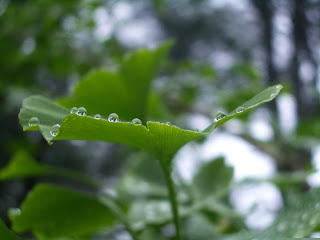Whether we realize it or not, most of us to don’t function with optimal mental clarity. It might be a forgotten lunch date or afternoon brain fog at work or school. As we get older, we become more aware – and fearful – about our mental wellbeing. What can we do to undo the state of our brain so that we think clearly and remember everything?
First, the basics: A healthy, low-glycemic, whole foods diet with a range of anti-inflammatory and antioxidant foods is crucial. Adequate omega 3 fatty acids and B vitamins in the diet and/or supplement form also help. Living off stress, multitasking, and skimping on sleep are some of the worst things we can do for our brain function. Exercising (both your physical body and brain-teasing activities) and spending time in nature give it a boost. Beyond these basic tenants of healthy living, several herbs hold the power to enhance memory, focus, and function.
Gotu Kola (Centella asiatica) is safe, gentle, and lovely multitasker for the multitasker. In India and Asia, people have long relied on the herb to enhance memory. It enhances circulation, improves connective tissue support, decreases anxiety, and improves the body’s resistance to stress, all of which benefit memory and cognition. Studies also suggest that gotu kola improves the brain’s ability to use glucose for energy when blood sugar levels are low. The herb is generally safe, even for children, though you should be cautious combining it with blood-thinning medications.
 |
| Ginkgo Leaves |
Ginkgo (Ginkgo biloba) standardized extract – available mainly as capsules – research has found that the herb generally improves memory and brain function for both healthy adults and those with memory-based disorders. Compounds in ginkgo increase circulation in medium and small blood vessels, which increases blood flow to the brain. It may help slow the progression of conditions like dementia and Alzheimer’s. The effects are not always immediately noticeable, so you may need to be patient to see results. Some people get a headache when they begin to use ginkgo, but this usually passes after a few weeks or with a reduced dose. Use caution with blood-thinning medications.
Bacopa (Bacopa monnieri) is helpful for mental function and focus. It’s a nootropic (“smart drug” or memory enhancer) that promotes memory and focus, relieves anxiety, slows the progression of Alzheimer’s, and improves recovery from brain trauma. Both bacopa and gotu kola are called “brahmi,” so check the Latin name to confirm.
 |
| Rosemary |
 |
| Freshly Harvested Sage |
 |
| Chocolate Mint (a variety of Peppermint) |
 |
| Fresh Turmeric Root (Dry is Good, too!) |
 |
| Fresh Carrot-Pineapple-Turmeric-Orange-Lemongrass Juice |
Turmeric (Curcuma longa) has achieved stardom due to its many benefits including antioxidant, anti-inflammatory, vascular, and liver support, and general protective properties. It may be particularly helpful in staving off diseases like Alzheimer’s, which is poorly understood but characterized by oxidation, plaque buildup in the vascular system, and inflammation. Populations in India and Okinawa that consume turmeric regularly tend to have long, healthy life spans and exhibit significantly less incidence of these brain diseases. Turmeric is more bioavailable if you cook it with some oil. Adding a bit of black pepper improves absorption by 2,000 times! Use caution with blood-thinning medications.
 |
| Organic blueberries from Blueberry Gardens |
Blueberries (Vaccinium spp) are arguably one of our most delicious brain foods. Researchers at Tufts’ Human Nutrition Research Center on Aging published a decade’s worth of human, animal, and lab studies demonstrating the diminutive blueberry’s ability to reverse age-related decline in mental function, fight oxidative stress, and improve symptoms of Alzheimer’s. Cultivated blueberries are helpful, but wild blueberries possess significantly more activity. Frozen blueberries offer the highest antioxidant content. Bilberry supplements can be substituted; they’re simply a European blueberry species.
Rhodiola (Rhodiola rosea) root is useful for someone who just needs a kick in the pants (or brain) to get off the couch and have better mental and physical energy. It’s a stimulating, fast-acting herb that helps reduce the effects of stress. Clinical research support its traditional energy and longevity uses. Studies found that it helped night shift workers and those taking exams perform better, and it can uplift the mood. But it can bother people who are easily agitated by stimulants, have bipolar disorder, or have sensitive stomachs.
These are just a few of the many brain-boosting herbs, foods, and supplements available to us. Others include omega-3 fish oils and fatty fish like salmon, B vitamins, vitamin C, holy basil, eleuthero, schizandra, gogi berries... While nothing is a guarantee, the healthier your overall lifestyle, the better your odds for optimal brain function now and as you age!
For more about stress and memory herbs, click here.
The statements made on this blog have not been evaluated by the FDA and are not intended to diagnose, prescribe, recommend, or offer medical advice. Please see your health care practitioner for help regarding choices and to avoid herb-drug interactions.
All photography by Maria, except the blueberries, courtesy of Blueberry Gardens.
Very important topic and you just did an amazing job presenting it in a simple and clear manner. Great topic. Herbal Memory Enhancer
ReplyDeleteThank you, Stacey!
Delete